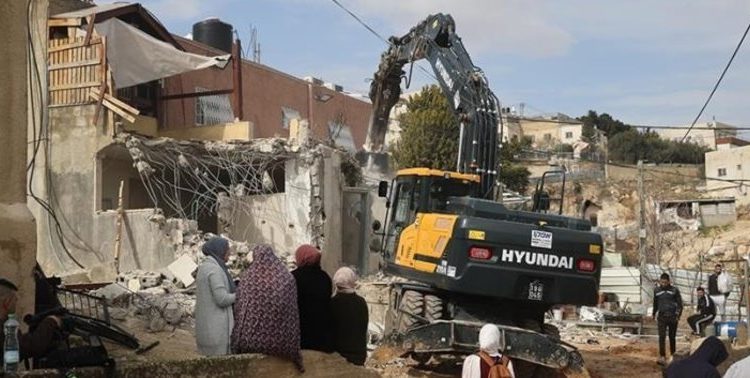Israel’s home demolition policy: What you need to know | The reasons why Israel demolishes Palestinian-owned homes
Israel’s rapid expansion of illegal Jewish settlements while demolishing Palestinian homes has ignited a contentious debate. The motivation behind these actions, the basis for such demolitions, and their alignment with international law have raised significant concerns.
Recent reports highlight the frequent demolition of Palestinian homes by Israeli forces, a central issue within the Israel-Palestine conflict that often remains obscured from the public eye.
Israeli authorities destroy Palestinian homes for two primary reasons: to establish new settlements or to expand existing illegal settlements.
However, these are not the sole drivers of demolitions in the West Bank and Jerusalem. Israel has historically demolished houses as a form of punishment for families associated with individuals believed to be involved in criminal activities.
The Israeli government regards this practice as permissible under its domestic law. The Emergency Defense Ordinance of 1945, still active under Section 119, grants local military authorities the authority, with a court order, to demolish homes if terrorism and violence escalate and become challenging to curb.
Initially, court decisions regarding demolitions were not open to appeal. However, since 1989, a clause allowing families to appeal demolition decisions was added. Despite numerous appeals, the Israeli Supreme Court has often supported the administration’s stance and upheld demolition rulings.
The international legal perspective can be analyzed through two main frameworks. First, the 1948 United Nations Universal Declaration of Human Rights emphasizes housing as a fundamental human right. Second, the 1949 Geneva Convention for the Protection of Civilians in Time of War applies to these regions due to their occupation by Israel.
According to Article 17 of the Universal Declaration of Human Rights, everyone has a right to property, and this right is inalienable. Under this fundamental declaration, which informs subsequent secondary texts, Israel’s imposition of house demolition as a punitive measure is deemed both unlawful and disproportionate. Basic human rights to housing and residence are disregarded, and individuals, innocent of any wrongdoing, suffer due to their family connections to perpetrators.
Article 33 of the Geneva Convention prohibits retaliatory measures against offenders and their property, including collective punishment for committed offenses.
Between 2001 and 2014, Israel destroyed 1,134 homes for lack of proper permits, equating to 6.25 Palestinian homes demolished each month and 2 Palestinians displaced every 10 days in the early 21st century.
Additionally, Israel imposes high tax rates on Palestinians in Jerusalem, making it difficult for them to reside in the historical city. Palestinians either turn to high-interest loans or build homes without permits to cope with these exorbitant taxes.
The Absence Law, passed in 1950 by the Israeli parliament, the Knesset, targets Palestinians who immigrated into or out of Palestine post the 1948 War. The law seizes land or real estate from owners who have emigrated to Israel. Under this law, Israel has confiscated roughly 300 villages and 20,000 buildings.

